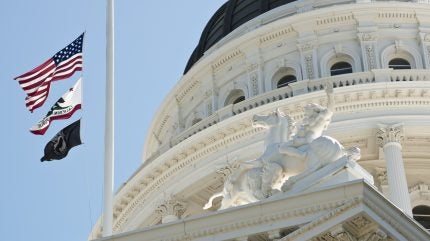
California’s legislature has passed a bill to ban “forever chemicals” in food packaging and certain consumer goods, though the move has drawn criticism.
The bill (SB 682), authored by Senator Ben Allen, secured a 41-19 vote in the Assembly, with 20 members abstaining.

Discover B2B Marketing That Performs
Combine business intelligence and editorial excellence to reach engaged professionals across 36 leading media platforms.
After passing Senate amendments, it now awaits California Governor Gavin Newsom’s signature by 12 October.
If enacted, SB 682 will prohibit the sale and distribution of “intentionally added” PFAS in a range of items, starting 2028.
The ban will cover cookware, food packaging, cleaning products, dental floss, ski wax and specific children’s products.
Cookware must comply by 2030, certain cleaning products by 2031 and other listed products by 2028.

US Tariffs are shifting - will you react or anticipate?
Don’t let policy changes catch you off guard. Stay proactive with real-time data and expert analysis.
By GlobalDataThe bill notes that exposure to PFAS, also known as “forever chemicals”, “poses a significant threat to the environment and public health”.
California had already enacted PFAS restrictions in textiles, cosmetics, food packaging, menstrual products, children’s items, and firefighting foam.
However, the latest bill has sparked debate, particularly over nonstick cookware containing PTFE, a PFAS type known as Teflon.
The Cookware Sustainability Alliance, a group representing cookware manufacturers, has rallied prominent chefs, including Rachael Ray and Thomas Keller, to oppose the bill.
Ray said: “I respect and share the desire to protect Californians and our planet, but I urge you to look closely at the science before moving forward with legislation that could unintentionally do more harm than good.
“PTFEs, when manufactured and used responsibly, are proven to be safe and effective. They’re a key component of durable, affordable nonstick cookware used by millions of home cooks across the country, including many families who rely on easy-clean cookware to make nutritious meals without extra oils or fats. Removing access to these products without providing fact-based context could hurt the very people we’re trying to protect.”
The Flexible Packaging Association (FPA) also opposed the ban, arguing it was not “scientifically valid”.
Nevertheless, the association is open to supporting a future version that offers “intentionally-added flexibility.”
However, non-profit Environmental Working Group (EWG) welcomed the passing of the legislation.
EWG co-sponsored the bill alongside organisations like fellow advocacy groups Natural Resources Defense Council and Clean Water Action.
EWG California legislative director Susan Little said: “This bill is a long overdue step toward protecting Californians from unnecessary exposure to ‘forever chemicals’ in everyday products.”
PFAS contaminate an estimated 45% of US tap water, according to the United States Geological Survey, with 98% of Americans carrying PFAS in their blood.
Scientific research links PFAS to serious health issues, including testicular and kidney cancer, kidney and liver damage, decreased immune system function and developmental and reproductive harm.
If signed into law, California would join states like Colorado, Connecticut and Minnesota in banning PFAS in similar consumer products.





